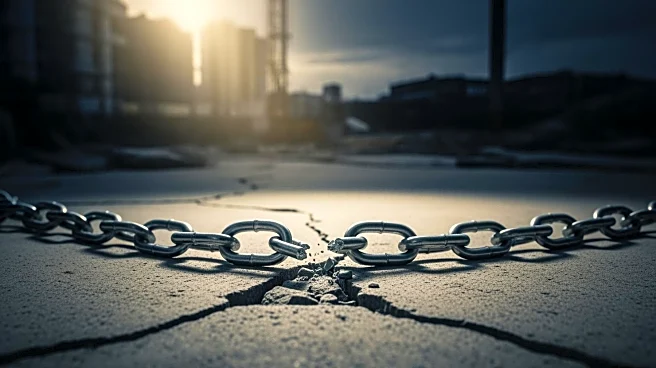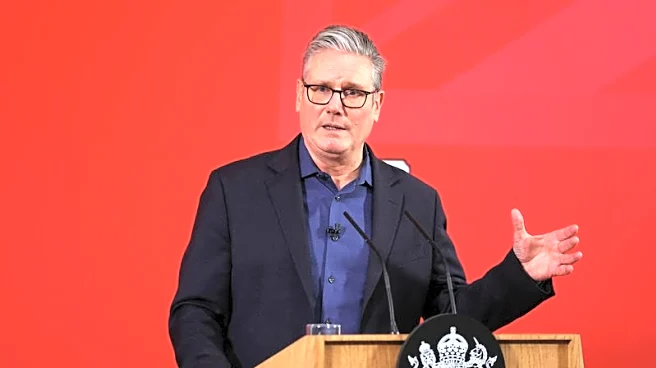What's Happening?
Thousands of protesters in Serbia have formed a human shield around a bombed-out military complex in Belgrade, opposing its redevelopment into a luxury compound by a company linked to President Trump's
son-in-law, Jared Kushner. The site, partially destroyed during a 1999 NATO bombing campaign, is slated for demolition and redevelopment under a plan supported by President Aleksandar Vucic's government. Despite fierce opposition from experts and the public, Serbian lawmakers recently passed a law facilitating the construction. The government argues the project will boost the economy and strengthen ties with the U.S., which has imposed tariffs on Serbian imports and sanctioned its oil supplier. Critics, however, view the complex as an architectural monument symbolizing resistance to NATO's bombing, and demand its protected heritage status be restored.
Why It's Important?
The redevelopment project has sparked significant controversy, highlighting tensions between Serbia's historical sentiments and current economic ambitions. The opposition reflects broader dissatisfaction with President Vucic's administration, accused of corruption in state projects. The protests are part of a larger movement challenging Vucic's grip on power, which began after a tragic incident in Novi Sad. The project also touches on sensitive anti-NATO sentiments in Serbia, where the U.S. role in revamping the military buildings is contentious. The outcome of this dispute could impact Serbia's international relations, particularly with the U.S., and influence domestic political dynamics.
What's Next?
The future of the redevelopment project remains uncertain as Serbia's organized crime prosecutors investigate potential forgery in documents used to remove the site's protected status. The protesters' demand for the restoration of heritage status and rebuilding of the complex could lead to further legal and political challenges. The ongoing protests may continue to pressure the government, potentially affecting its decision-making and public support. International reactions, especially from the U.S., could also play a role in shaping the project's trajectory.
Beyond the Headlines
The controversy over the redevelopment project raises questions about the balance between economic development and cultural preservation. It underscores the ethical considerations of altering historical sites for commercial gain, especially in regions with complex historical narratives. The situation also highlights the influence of foreign investments in shaping local policies and the potential for such projects to become focal points of political dissent.










